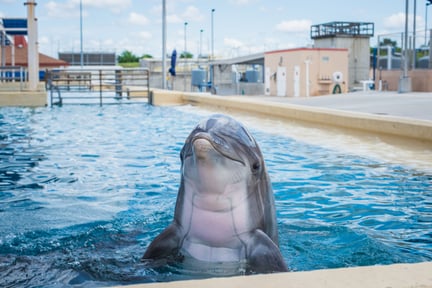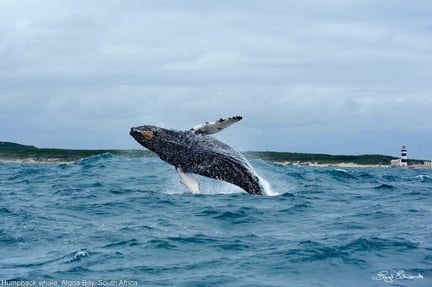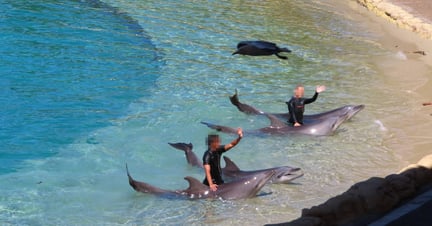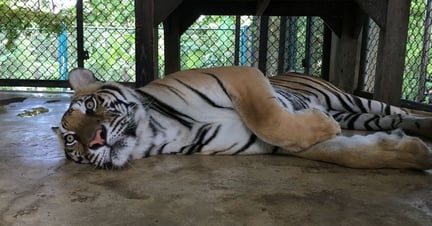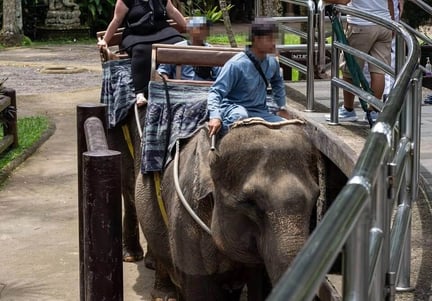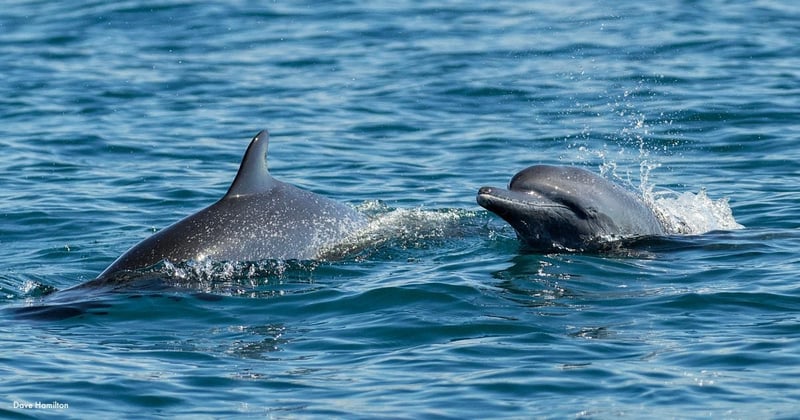
Mexico bans dolphin shows in historic win for animal welfare
News
The Mexican Congress has approved a nationwide ban on dolphin shows and the use of marine mammals in entertainment.
With full support from both the Senate and the Chamber of Deputies, Mexico has passed legislation that prohibits the use of dolphins in shows, therapy, entertainment, research, and any other activity not related to conservation. The law also bans the breeding of dolphins in captivity.
Dolphins currently held in dolphinariums and marine entertainment facilities will remain in captivity but must be cared for under strict welfare standards until their natural death.
The authorities are now responsible for ensuring that these animals live out their lives in conditions that meet their physical and behavioural needs.
This legislative victory comes just weeks after shows were suspended at a controversial dolphinarium in the Riviera Maya, following public outrage and pressure from campaigners.
The hidden suffering of dolphins in captivity
For years, scientists, activists, and animal welfare organisations have campaigned to expose the cruelty behind dolphin entertainment.
Our investigation The Suffering Behind the Smile revealed alarming findings, including:
- Over 300 dolphins have been exploited in Mexican facilities in recent decades
- Many of these dolphins were born in captivity, confined to artificial tanks and subjected to forced training
- Captive dolphins suffer from chronic stress, abnormal behaviours, and diseases linked to confinement
The new law is a direct response to overwhelming evidence of animal suffering and growing public demand to end the use of dolphins for entertainment.
Eugenia Mora, Campaign Strategist, World Animal Protection:
This is a huge step forward for animals and a historic milestone that other countries must follow. We have long documented the suffering of dolphins in captivity not only in Mexico but in Spain and across the world.
With this law in place, we urge the Mexican authorities to ensure robust monitoring of the dolphins who remain in captivity and to guarantee that they are kept in environments that meet their species-specific needs.
In 2022, more than 100 scientists, supported by World Animal Protection, publicly condemned the captivity of dolphins, highlighting the psychological and physical harm caused by the tourism and entertainment industries.
Progress in Latin America - but challenges remain
Mexico joins Costa Rica and Chile as one of only three Latin American countries to ban dolphin shows and captive breeding of cetaceans.
In Spain, while wild animals have been banned from circuses, dolphinariums continue to operate.
Our recent protest outside the Oceanogràfic marine park in Valencia featured a traditional falla - a temporary satirical sculpture - calling for the release of dolphins held in captivity.
Responsible tourism is the ethical alternative
Watching animals in the wild is the most respectful and rewarding way to experience wildlife.
Unlike shows in captivity, responsible tourism does not cause animal suffering and actively contributes to habitat conservation.
Travellers can support ethical experiences by choosing tour operators that prioritise animal welfare and sustainability.
Initiatives like Wildlife Heritage Areas, including designated Whale Heritage Sites, help protect biodiversity while offering unforgettable wildlife encounters.
Help end dolphin entertainment
Mexico's ban on dolphin shows is a powerful victory for animals, but the fight is not over. We will continue to campaign globally to end dolphin captivity.
Together, we can bring an end to dolphin captivity around the world.
Sign the petition to close dolphinariums in Spain and call for the release of captive dolphins
Related content
The seven biggest lies the captive dolphin industry tells
Blog
The cruel, multi-billion dollar captive dolphin industry relies on lies to keep visitors in the dark. Don't be fooled – dolphins belong in the wild
Whale Heritage Areas
Heritage Sites
World Animal Protection in partnership with World Cetacean Alliance recognise outstanding destinations for responsible wild whale and dolphin watching
Captive dolphins endure extensive suffering in their tragic lives
Blog
Learn about the reasons behind the suffering of captive dolphins, their behaviour in their natural habitat, and responsible tourism practices.
